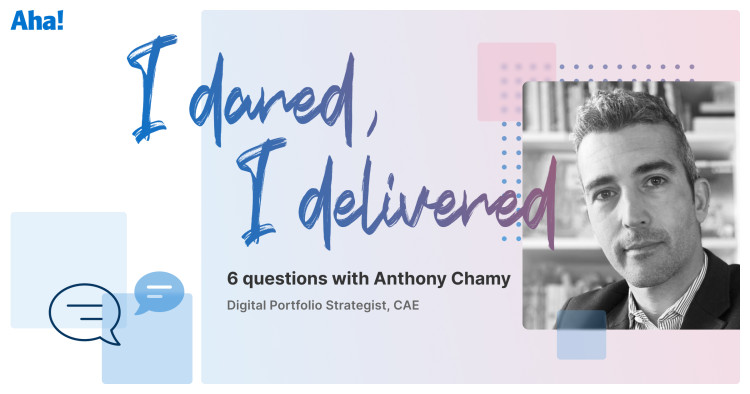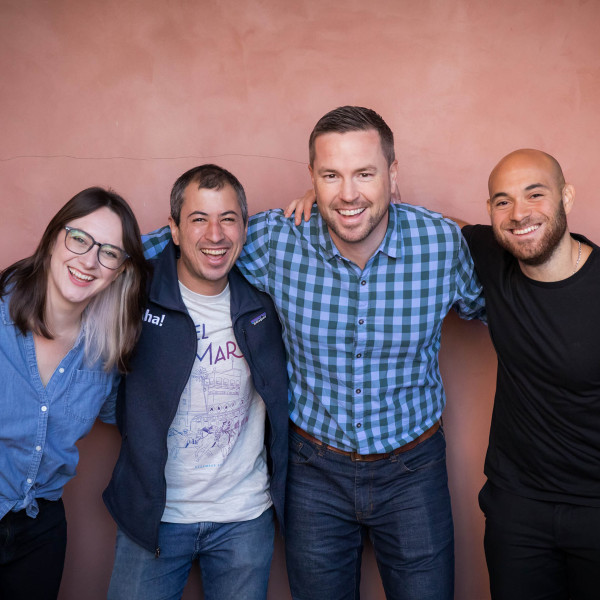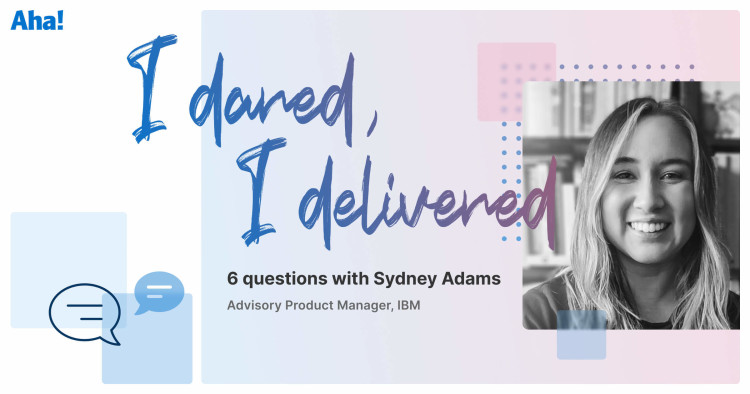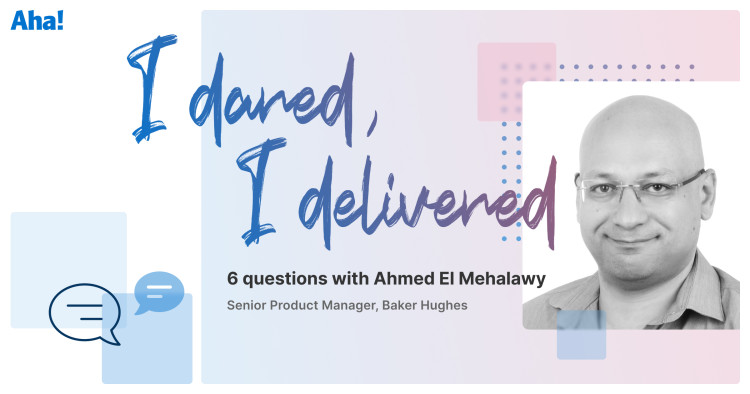
Product All-Star: 6 questions with Anthony Chamy
Building products is an adventure. That is what makes it the best job in the world. But it is not for the faint of heart — true product success requires decisive action, continuous effort, and a relentless pursuit of value.
At Aha! we have the honor of being connected to product experts and companies who go boldly and bravely. We are asking folks to share their knowledge with you — in hopes it will inspire you in your own product career.
Anthony Chamy is a digital portfolio strategist at CAE, a world leader in training and simulation in the fields of civil aviation, defense and security, and healthcare. As a technology company, CAE digitizes the physical world, deploying software-based simulation training and critical operations support solutions. Based in Montreal, Anthony is deeply involved in creating a digital product management framework that helps bring CAE's products to life.
Outside of work, Anthony loves to hang out with his kids, play ice hockey (he is a goalie), and travel.
What was your first product role?
"Several years ago I worked in a completely different industry — sustainable travel and ecotourism — first co-founding a successful startup and then leading national sales for Rocky Mountaineer. But I have always had an affinity for technology.
Roughly five years ago, I joined an aviation company as a senior analyst in marketing and sales. I was working with incredible aviation engineers who provided highly technical information. One of the challenges we faced as a team was translating these complex capabilities into clear benefits for our audience. Applying my experience in business development, I was able to distill this info into digestible narratives for customer success and marketing. That strength ultimately got me into product management.
Later, I joined CAE's digital transformation team and have spent the last few years studying the aviation industry and digital product management best practices. Today, my work is focused on enabling the organization to optimize where we spend our money in the digital realm. We are building a process to optimize our investments in technology, effectively eliminating things like technical debt and duplication while maximizing things like OKR alignment, data-based business value prioritization, and planning around dependencies. The idea is to leverage product management best practices and develop a custom framework for everyone at CAE to build from."
What are the most important traits for a product builder?
"See the power in a good process."
"You can know your customer well and build great apps, but in an environment where you need to scale (we have hundreds of apps at CAE), you cannot limit business problem-solving to local use cases. It is simply inefficient. It will cause a fragmented network of capabilities and duplicate apps across your digital ecosystem. So the key is to build a framework so you can visualize needs across the business and build scalable, reusable components.
Also, there will always be a backlog of new ideas or feature requests. But with budgets, time, capacity, and resources being finite, you need to prioritize what you build wisely.
You need information and an 'apples-to-apples' process to compare it. A good product builder seeks to understand the problem, the risk, the urgency, the cost, ROI, customer satisfaction, and more. You want to know how the data was sourced and need to ensure comparisons are accurate and documented. Then you can make grounded decisions, pass them onto stakeholders transparently, and drive progress."
What would you recommend not to do when starting out in a product career?
"Do not take things at face value."
"In product management, you can't assume things based on history or hearsay or small sample sizes. You need to corroborate hypotheses with facts. Sometimes the best route to get that data is to simply start small, test, collect insights, refine, rinse and repeat, and then you can eventually get it right.
This approach is better for your customers, too. Gather data from people using your product and iterate. When you are really sure, go for it. That will drive customer satisfaction and value.
And remember, just because you don't have the data you need at your fingertips does not mean it is impossible to find. Don't take 'I don't know' for an answer. Sometimes you need to roll up your sleeves and just investigate. Check out the competition, talk to SMEs, interview customers — that is a big part of the job and helps properly guide the prioritization."
How do you stay motivated when complex challenges arise in product development?
"I try not to fit people into a specific mold. This is especially important in my role today because cultural and regional differences are everywhere. Each team is functioning under a different reality — business environments, regulations, and market penetration."
"I work within complexity by facing each challenge with a consultant’s mindset."
I try to understand each team's goals and guide them in their own product journey. The work is entrepreneurial in spirit and that's what keeps me motivated. My approach and advice differ across teams, but I'm always focused on adding value to the business and for our customers — how each team gets there is unique. That's what makes my job fun."
What is the most exciting aspect of your current role?
"It is exciting to see the company moving into new markets while leveraging 75 years of history. I get to tap into the potential of incredibly smart people — helping to get products that bring value to market faster than the competition. That energy keeps me going and keeps me excited."
What will change most about product development in the next decade?
"We are all talking about generative AI, and for good reason. I liken it to the launch of the internet, but even more transformative. It is evolving daily, allowing for levels of prototyping, prediction, and automation we didn't think was possible. And it goes beyond just automating tasks. What's mind-blowing is the level of creativity that can be leveraged to bring unique, never-before-seen value. That is going to change how we think about and build products end-to-end."
Read more of the Product All-Star series.
Know an inspiring product builder? Nominate them to be featured in an upcoming post. They simply need to be doing quality work and using Aha! software.




